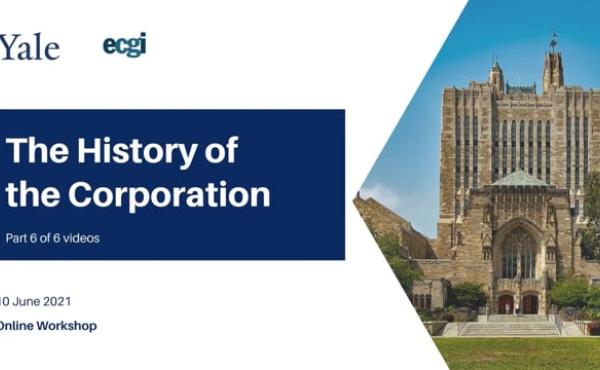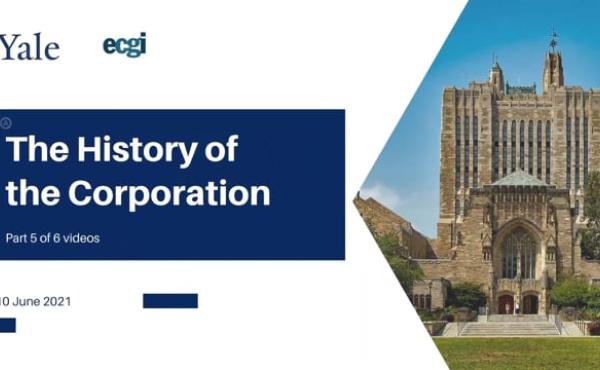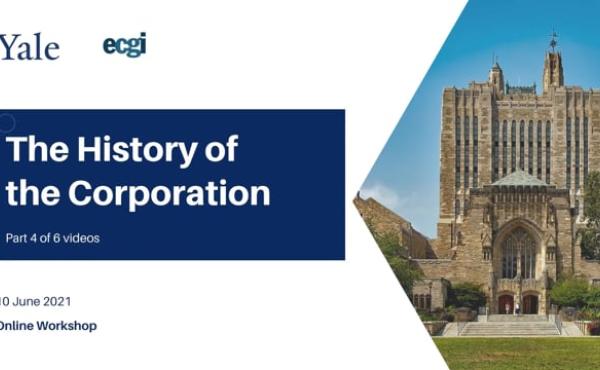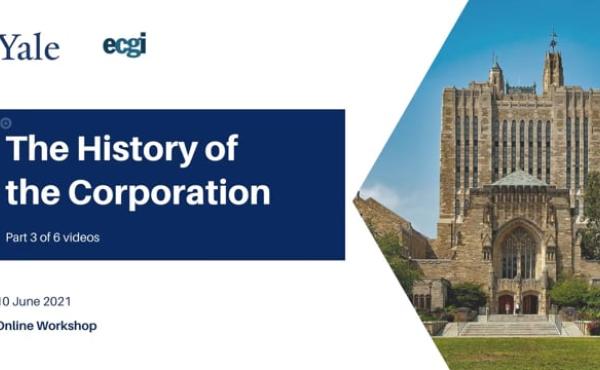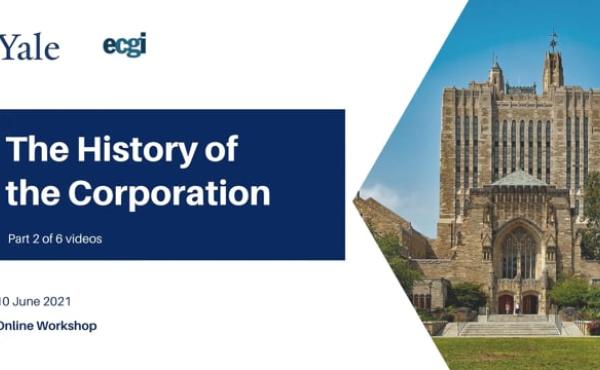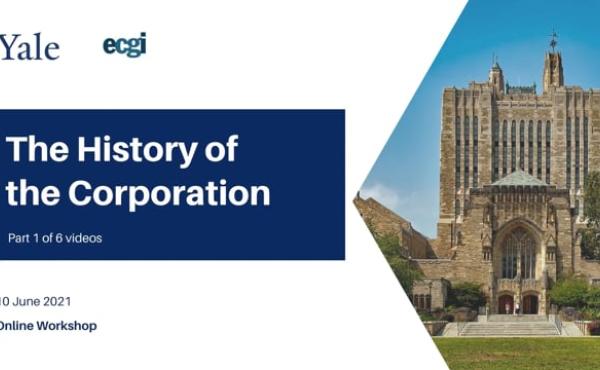
The History of the Corporation
The videos of each session are available under the presentation tab on this page and also on the ECGI YouTube channel
Thursday, 10 June 2021
09:00 – 16:00 EDT | 15:00 – 22:00 CEST
Organisers
Henry Hansmann (Oscar M. Ruebhausen Professor Emeritus of Law, Yale Law School and ECGI)
Naomi Lamoreaux (Stanley B. Resor Professor of Economics & History, Yale University)
ABOUT THIS EVENT
In anticipation of the sixth Global Corporate Governance Colloquium, which was held online on 11-12 June 2021, the organisers presented a virtual workshop on ‘The History of the Corporation’ on 10 June 2021. The workshop highlighted the Imperial Russia, turn of the century Egypt and China, Edwardian Britain and the Gilded Age US, exploring issues of corporate governance that continue to resonate in the present day. The morning sessions will examine the relative performance of western-style corporations and their indigenous alternatives in Russia, Egypt, and China. The afternoon papers re-examined structures of corporate governance and control in the US and Britain in the late-nineteenth and early-twentieth centuries. The conference concluded with commentary that draws out the broader implications of these historical studies, setting up themes.
About the 2021 Global Corporate Governance Colloquium
The Global Corporate Governance Colloquia (GCGC) is a global initiative to bring together the best research in law, economics, and finance relating to corporate governance at a yearly conference held at 12 leading universities in the Americas, Asia and Europe. The Sixth Annual GCGC Conference was hosted (online) by Yale Law School on 11 - 12 June 2021. Due to the online format, the event will, by exception, be open attendance. More details are available here.
Programme
Introduction
Speaker(s)
Break
Break
Lunch Break
Break
Break
General Discussion
Speaker(s)
Concluding Remarks
Speaker(s)
Meet & Greet
Speakers
Presentations
Contact
























